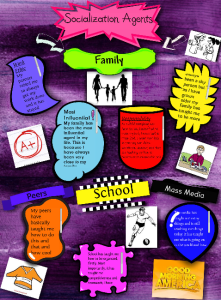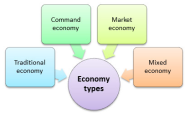The process by which individuals acquire their political opinions is called political socialization. During childhood, the family and schools are important sources of basic political attitudes, such as beliefs about the parties and the nature of the U.S. political and economic systems. Many of the basic orientations that Americans acquire during childhood remain with them in adulthood, but socialization is a continuing process. Adults’ opinions are affected mostly by prior beliefs, peers, political leaders, and the news media. Events themselves are also a significant short-term influence on opinions.
The agents of socialization are family, schools, mass media, peers, and political leaders and events. The family is a powerful agent of socialization because it has a near monopoly on the attention of a young child, who places great trust in what a parent says. Schools has its major impact on children’s basic political beliefs rather than on their opinions about specific issues. The themes and images that prevail in mass media affect people’s perceptions of their world. Peer groups reinforce what a person already believes.Citizens look to political leaders and institutions as guides to opinion.Churches play a substantial role in shaping social and political opinions including ones related to society’s obligations to children, the poor, and the unborn.
Homework:
Read Chapter 6 pp.193-195
![]()
Filed under: agents of socialization, HGov | Leave a comment »



